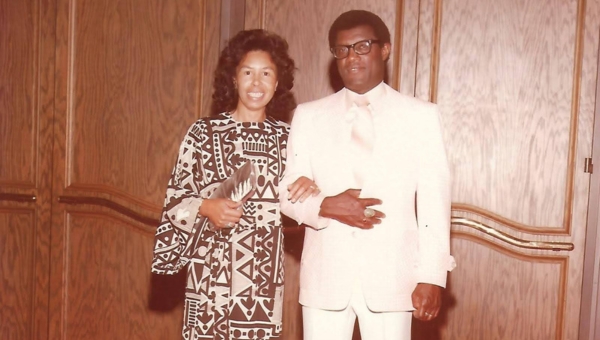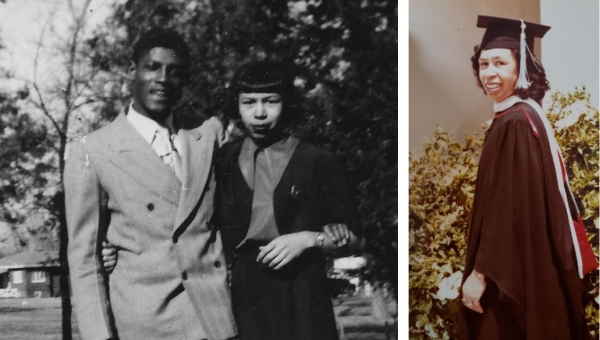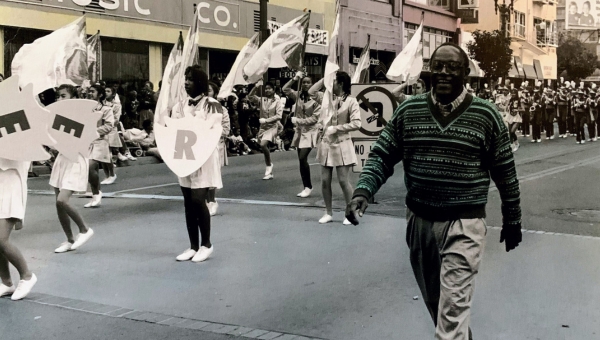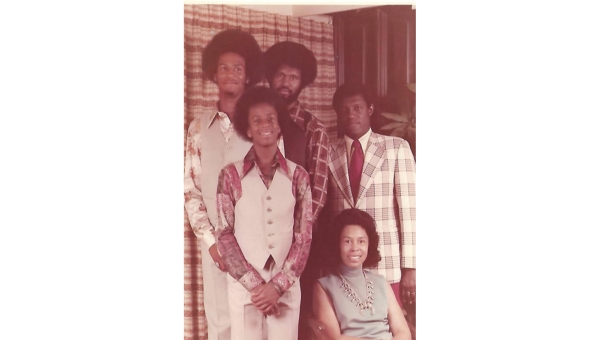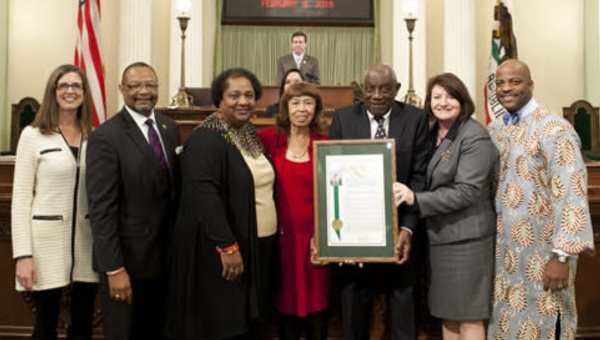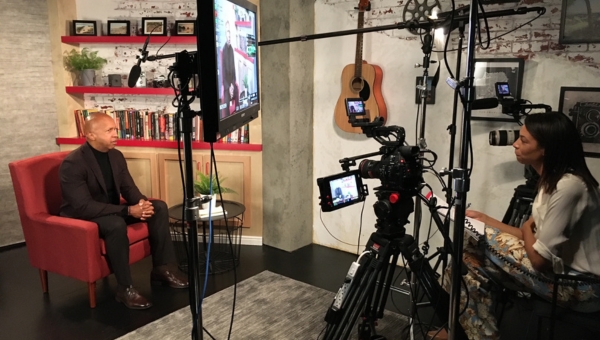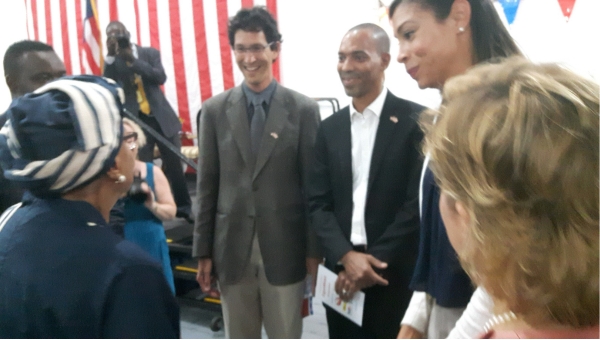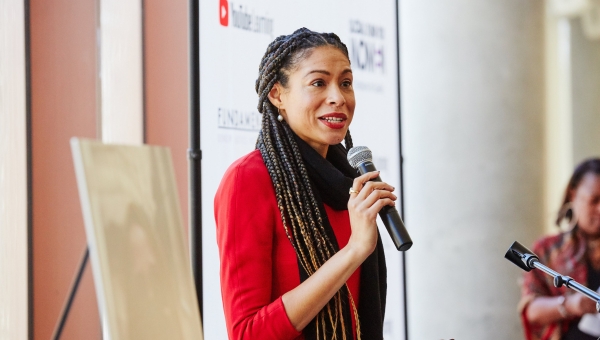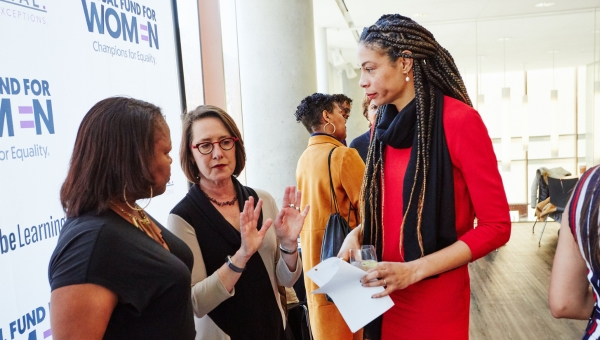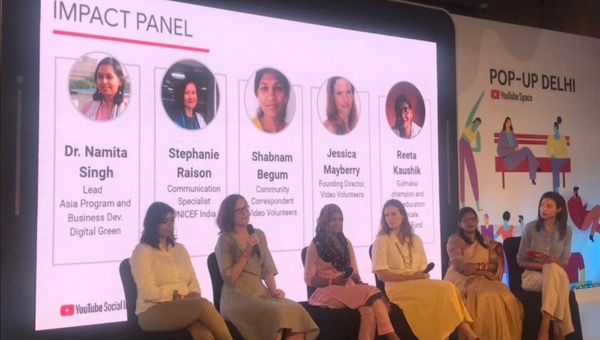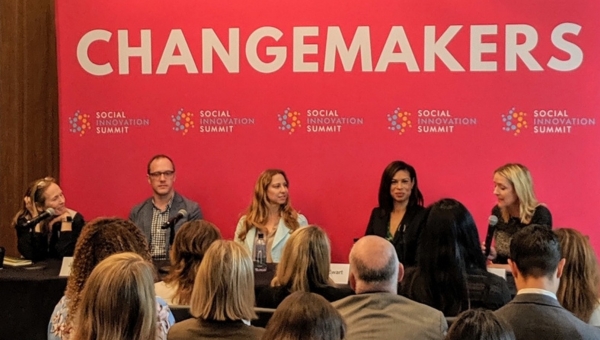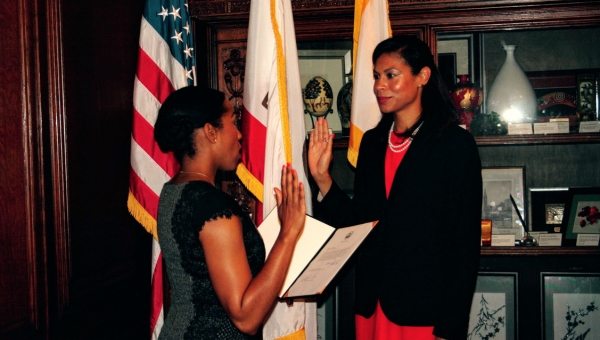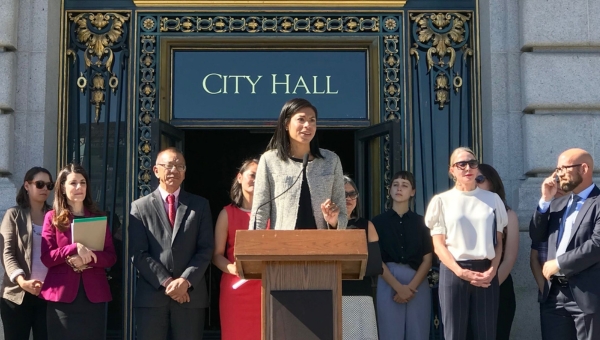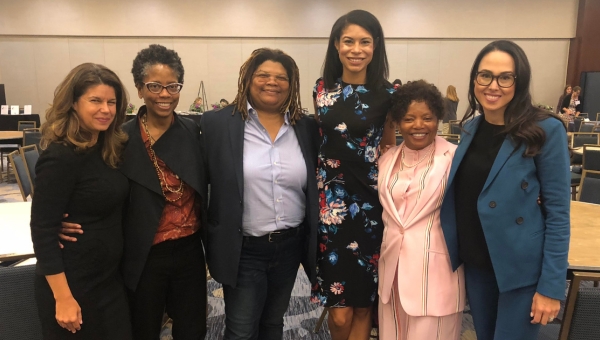From Treasury to Tech: Championing Change, Equity, and Creating a Better World for Everyone
By Jennifer Monahan
Zwart’s grandparents, Dr. Robert Matthews and Ardelle Matthews, were teachers. Both were raised on farms – Robert in Kansas, and Ardelle in Cotton Plant, Arkansas. Both were the first in their families to attend college.
“My grandmother picked cotton as a child,” Zwart said. “They both fought for a better life.” Her grandmother was the first in her small, rural community to go to college. During those years, Ardelle traveled home to talk about her experiences and to encourage other young people in her hometown to attend college. Zwart’s grandparents spent their lives serving generations of students and working for racial justice. Those lessons had a significant impact on Zwart.
Zwart, in turn, has made a significant impact for women and girls across a variety of arenas.
A Legacy of Service
Dr. Robert Matthews and Ardelle Matthews were teachers, as well as first in their families to attend college. They used their achievements to help others succeed.
A Tartan twice over, Zwart earned a bachelor’s degree in the interdisciplinary BXA program (2006) from Carnegie Mellon University’s Dietrich College and a master’s degree in public policy and management (2008) from CMU’s Heinz College of Information Systems and Public Policy. As you might expect with a newly minted policy degree in hand, Zwart gravitated towards government service.
In 2011, she landed as a political appointee in the U. S. Department of the Treasury (USDT) during the Obama administration, in the midst of the economic crisis.
“It was really all hands on deck,” Zwart explained. She pitched in to help where she was needed. At the same time, Zwart had an interest in gender issues. She wanted to make the world more just, and she shared that interest with a manager at the USDT. That person told Zwart the USDT needed to do more work around gender equity, and encouraged her to take on the issue.
It was an instance of Zwart’s passion matching the opportunity. During her time at the USDT, Zwart managed the gender and multilateral financial institutions portfolios and advised Secretaries Geithner and Lew on related policy issues. She worked with the World Bank and the International Finance Corporation (IFC).
“We looked at how resources and funding are being distributed, what equity looks like there,” Zwart said.
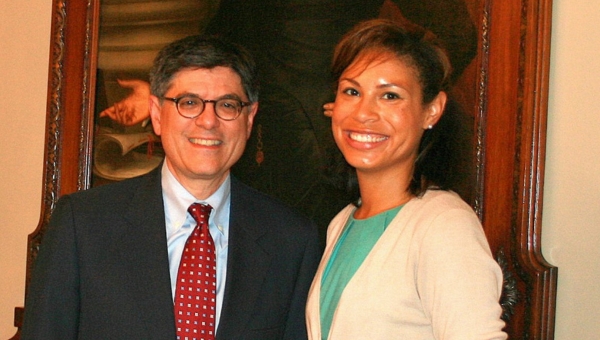
U.S. Department of the Treasury
Zwart worked in the USDT during the Obama administration, managing the gender and multilateral financial institutions portfolios and advising Secretaries Geithner and Lew on related policy issues.
Though her work was satisfying, presidential appointments have a built-in shelf life. At the end of her tenure, Zwart decided to shift into the private sector. In 2013, she accepted a job as the operations lead for global public policy at Google. Soon after, she took on the role of managing emerging markets for Google’s Next Billion Users initiative.
A Career Focused on Equity
In a career path that has spanned both government and tech, the through-line is equity. Whether she is focused on gender economics or human rights, Zwart continues to work towards a better world.
As part of the Google team, Zwart brokered deals to build high-speed internet infrastructure in emerging markets. That experience – working with engineers, regulators, and heads of state to achieve the goal – was both challenging and rewarding. Her work in Liberia, in particular, constitutes one of Zwart’s proudest professional accomplishments.
“USAID [the U.S. Agency for International Development] had approached us with the idea that they wanted Google to do some digital reconstruction in West Africa,” Zwart explained. Her team was able to create strategic relationships in Monrovia, Liberia, that enabled them to lay down fiber there.
“It felt great because we were providing more equitable access, but it wasn’t charity. It was a business collaboration, and it was successful,” Zwart said. President Biden recently cited their work with USAID as a model of effective public-private partnerships.
Zwart moved from Google to YouTube. As a strategic partnership manager at YouTube Social Impact, Zwart developed partnerships with non-governmental organizations like UNICEF, Doctors Without Borders, and the Malala Foundation to support human-rights defenders.
“It was interesting and really fun work because it had social impact, but we made a difference in a way distinct from the work done through a foundation – we weren’t giving out grants or money,” Zwart explained. “Instead, we were teaching people how to use technology to build community. We provided the tools, the platform, and taught them how to become effective digital storytellers – how to tell their own stories.”
Making Change in Tech
Zwart has worked to increase equity for people around the world, and to empower them to tell their stories.
Zwart’s commitment to equity, particularly for women and girls, extends outside her professional roles. Since 2015, she has served on San Francisco’s Commission on the Status of Women (COSW); she was elected president in 2019.
“It’s one of the strongest and most innovative commissions in the country,” Zwart explained. COSW tackles a broad range of issues affecting women and non-binary people, including violence prevention, gender equality in the workplace, financial empowerment, and equal representation on public decision-making bodies.
In 2021, Zwart became a senior director at Microsoft Cloud for Industry. Her proudest professional accomplishment – notably, one that even tops getting a shout-out from the President of the United States about her efforts – came recently. Zwart received a thank you note from a member of her team who was leaving. The person thanked Zwart for creating a culture where the person could be their full self and feel like they belonged.
“That’s the type of culture I strive to create for everyone,” Zwart explained. “To have it be affirmed meant a lot.”
Working for Gender Equity
Since 2015, Zwart has served on San Francisco’s Commission on the Status of Women. The group tackles violence prevention, gender equality, financial empowerment, and more.
Navigating an Unconventional Career Path
Her years at Heinz prepared Zwart well for the various spheres in which she operates.“I didn’t have a traditional career ladder or planned path,” Zwart explained, “and it’s because of the core skills I learned at Heinz that I was able to chart my own journey.” Zwart cites faculty members Linda Babcock, Rema Padman, and Lowell Taylor as teaching her the skills she uses every day – negotiation, economics, stats, data systems. One professor, in particular, changed the course of her career.
“All roads lead back to Silvia,” Zwart said, referring to Professor Silvia Borzutzky. “I met her during my freshman year at CMU. She has been a mentor, a sponsor, and an advocate ever since.”
It was Borzutzky who first suggested Zwart consider the Public Policy and International Affairs (PPIA) summer fellowship during her undergraduate years; Zwart was accepted to the program at Princeton University, and got hooked on public policy while participating in the fellowship. During both her undergraduate and graduate studies, Zwart was a teaching assistant in several of Borzutzky’s classes. Borzutzky, whose courses focus on gender inequality, poverty, human rights, race, and international policies and politics, provided the academic underpinning that allowed Zwart to create a career that tackles those big issues – in government, in tech, and in her community.
“I thought I was always going to work in government, because that’s where you address those big, hairy problems,” Zwart said. “I thought that’s where I needed to be to affect change. What I realized later is that there’s no one way to do things, and I could make a difference in the tech industry. The foundation I built at Heinz enabled me to do that. Ultimately, it all really goes back to the idea of service.”
And for Zwart, service goes back to the example set by her grandparents. They taught her to work for equity for all people.
“They showed me how to lift up others, how to bring the community together, and to think about what needs to happen for Black and brown people – and for everyone – to actually be equal,” Zwart said. “Their example has continued to drive me to live up to their ideals of what this world should be.”
